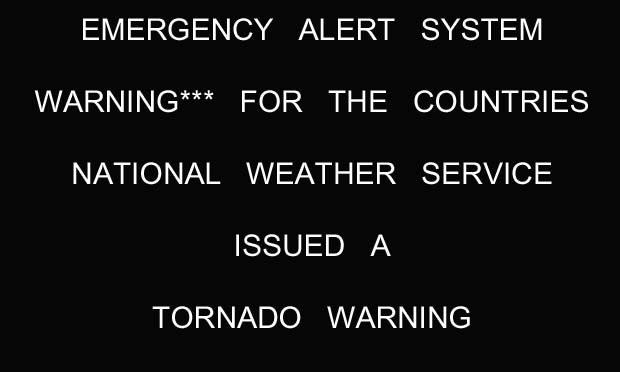According to a report on BBC, the system used to broadcast to the United States in times of national crisis can be hacked, researchers have warned.
EAS- Emergency Alerting System which was set up to allow the president to talk to the entire country within 10 Minutes of a disaster and according to the security specialists IOActive one of the TV Network’s output “was interrupted by news of a zombie apocalypse”.
Lead researcher Mike Davis said the system needed to be re-engineered.
A guidance sheet was also released by IOActive for concenrened broadcasters which are looking to secure their systems
Fake public service announcement
Bodies of the dead are rising from their graves and attacking the living
‘Extremely dangerous’
In February, weaknesses in the system – which was introduced in 1997, replacing an older set-up – were exposed by hackers.
“Earlier this year we were shown an example of an intrusion on the EAS when the Montana Television Network’s regular programming was interrupted by news of a zombie apocalypse,” said Mr Davis.
“Although there was no zombie apocalypse, it did highlight just how vulnerable the system is.”
The message, which was also played out on a radio station in Michigan, said: “Civil authorities in your area have reported that the bodies of the dead are rising from their graves and attacking the living.
“Follow the messages onscreen that will be updated as information becomes available.
“Do not attempt to approach or apprehend these bodies as they are considered extremely dangerous.”
Station bosses later apologised for any alarm or distress to listeners brought on by the unexpected alert.
UK testing
In the UK, no such emergency broadcast system is in place.
“We don’t have an alerting system similar to that in this country at the moment,” a Cabinet Office spokeswoman told the BBC.
However, the government is set to launch trials later in the year of a new “public emergency alert system”.
Mooted plans include alert systems which span a variety of platforms, including the internet and mobile.
Social media will also be key, according to consultation documents published on Gov.uk.
“The popularity of social media makes it an ideal platform for communication with people and for disseminating additional information in the aftermath of an emergency,” the document reads, before remarking that security must be a high priority to prevent false alarms.
If a national emergency were to take place today, broadcasters such as the BBC have contingency plans to ensure broadcasts can continue even if key locations are inactive.



